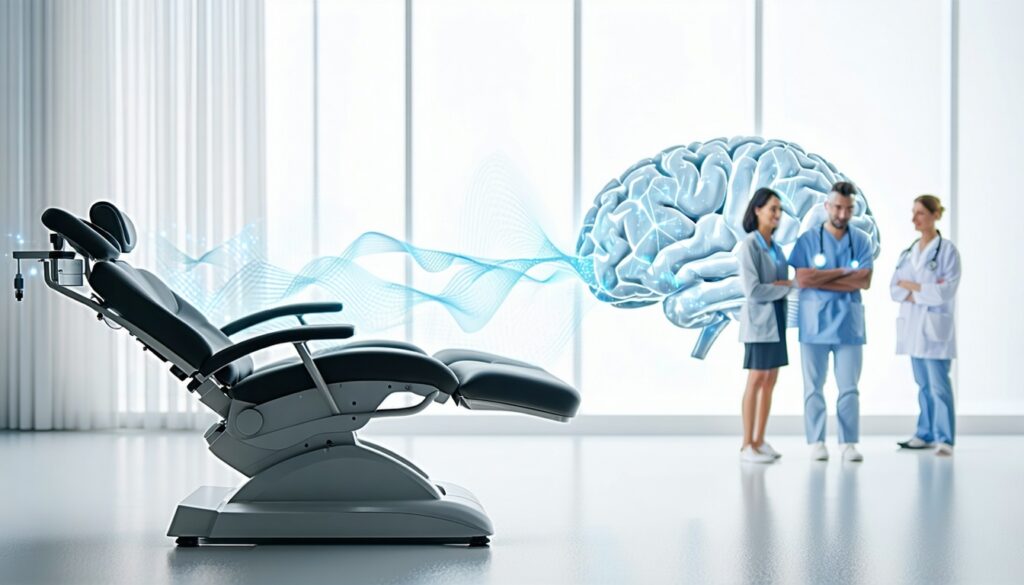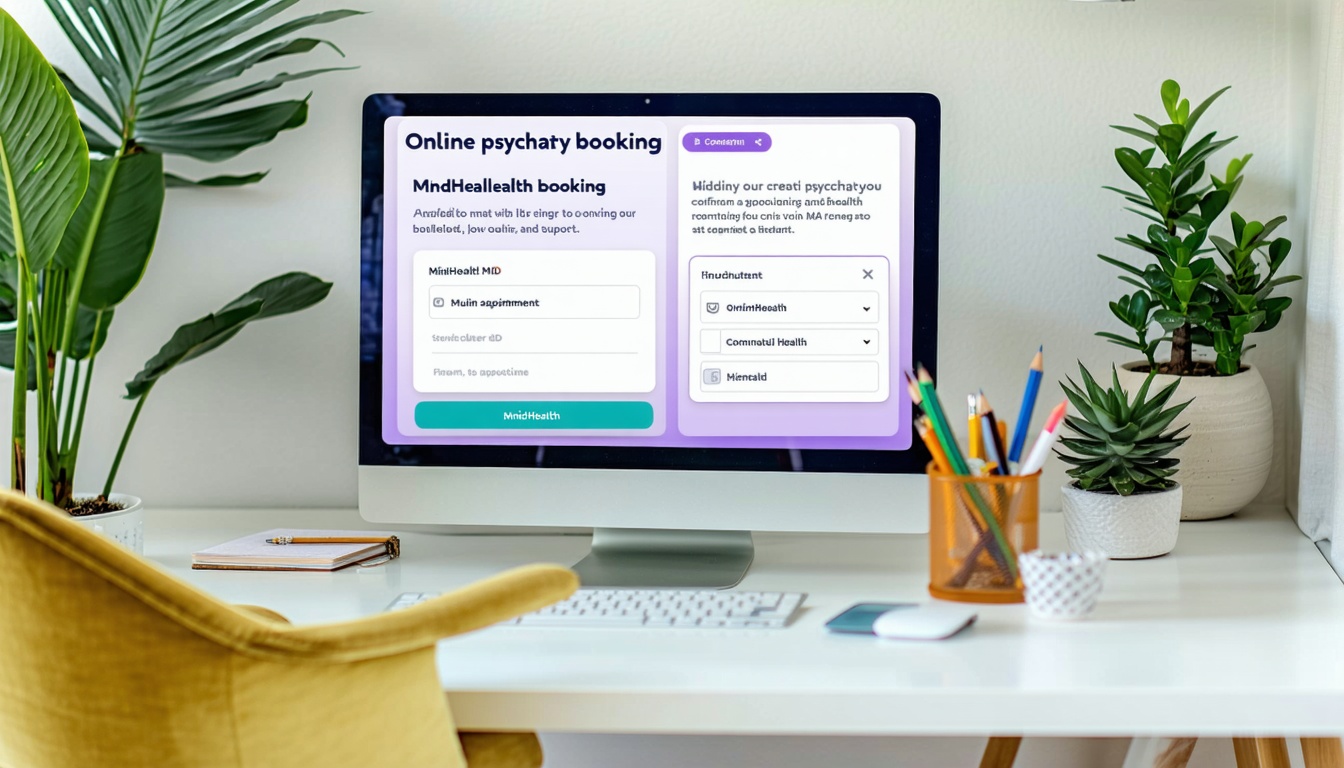The Benefits of Non-Drug Treatments
Exploring drug-free options for managing depression is essential for many seeking relief from their symptoms. Two prominent approaches in this realm are exercise and psychological interventions.
Exercise and Mental Health
Engaging in regular physical activity has been shown to alleviate symptoms of depression and anxiety. According to the Mayo Clinic, exercise not only has physical benefits but also enhances mental health by improving mood and reducing anxiety. Research indicates that moderate exercise, such as 30 minutes a day for at least five days a week, can significantly improve overall well-being for individuals battling depression.
| Exercise Frequency | Benefits |
|---|---|
| 3-5 days a week | Increases natural production of endorphins, enhancing mood |
| 30 minutes daily | Reduces immune system chemicals that can worsen depression |
| Consistent routine | May prevent recurrence of depression and anxiety |
Moreover, exercise stimulates the production of endorphins, the body’s natural feel-good hormones, and can help ease anxiety. This natural approach offers resilience against everyday stressors without the reliance on medication, making it a strong option for those seeking a natural depression treatment.
Psychological Interventions
There are various psychological therapies that can effectively enhance mental well-being, with or without the use of antidepressants. Therapies such as cognitive-behavioral therapy (CBT) and interpersonal therapy can provide powerful tools for managing depression. According to Intermountain Healthcare, these interventions often promote beneficial changes in thought patterns and behaviors, enabling individuals to cope more effectively with their mental health challenges.
Psychological therapies empower individuals by delivering coping strategies and fostering resilience, thus enhancing their quality of life. Many individuals find that combining therapy with innovative treatments like TMS therapy provides comprehensive care. If you are considering options beyond medication, explore therapies in combination with other modalities.
Through the combination of exercise and psychological interventions, many individuals can experience significant relief from their symptoms. If you are looking for effective non-drug therapy for depression, these approaches may be worthwhile to consider to improve your mental health.
Lifestyle Changes for Depression
Addressing lifestyle changes can be an effective component in a drug free depression treatment. Two critical factors are sleep patterns and dietary impact on mood. These elements can significantly influence mental health and are crucial to consider for anyone looking to improve their overall well-being.
Sleep Patterns and Depression
Quality sleep plays a vital role in managing depression. Fatigue from inadequate sleep can exacerbate depressive symptoms. It’s essential to maintain a balanced sleep schedule—not too little and not too much—to help alleviate depression. Irregular sleep patterns, such as staying up late one night and oversleeping the next day, can feed into depressive feelings.
Developing a calming bedtime routine and adhering to a consistent sleep schedule can significantly enhance the quality of sleep for individuals dealing with depression. Aim for 7-9 hours of sleep per night to promote recovery and well-being.
| Sleep Quality | Recommended Hours | Impact on Depression |
|---|---|---|
| Ideal | 7-9 | Enhances mood stability |
| Poor | Less than 7 | Worsens depressive symptoms |
| Excessive | More than 9 | May lead to lethargy and increased depression |
It is advisable to consult a healthcare provider if depressive symptoms last most of the day for more than two weeks [2]. Addressing sleep issues can serve as a fundamental first step in treating depression.
Dietary Impact on Mood
Diet is another influential aspect when it comes to mood and mental health. An increased intake of micronutrients like magnesium, folic acid, and vitamin B has been associated with improved mood and prevention of depression. Understanding how certain foods can impact your mental health can help you make better choices to feel more balanced and stable.
| Nutrient | Food Sources | Mood Impact |
|---|---|---|
| Magnesium | Spinach, nuts, whole grains | May help alleviate symptoms of depression |
| Folic Acid | Leafy greens, legumes, fortified cereals | Important for mood improvements |
| Vitamin B | Meat, dairy, eggs, fish | Essential for brain health and mood regulation |
Incorporating these nutrients into your diet can enhance your mood. Aim for a balanced diet rich in whole foods rather than processed ones to support your mental health. Addressing dietary habits is a key component of non-drug therapies for depression. For more information on natural treatments, you can explore natural depression treatment options.
By prioritizing sleep and nutrition, you can create a solid foundation for managing depression effectively and potentially enhance the outcomes of TMS treatment and other therapeutic avenues.
Exploring Alternative Therapies
Alternative therapies can serve as effective options for individuals seeking drug-free depression treatment. These approaches include herbal supplements and practices like yoga, which can contribute positively to managing depressive symptoms.
Herbal Supplements and Depression
Herbal supplements have been considered for depression, especially when standard treatments like psychotherapy and medication do not yield satisfactory results. One of the most popular herbal remedies is St. John’s Wort, which has been used for centuries in various cultures. Research suggests that it may be most effective for individuals experiencing mild to moderate depression, while its efficacy for severe depression is less supported by evidence.
| Herbal Supplement | Effectiveness for Depression |
|---|---|
| St. John’s Wort | Mild to moderate depression |
| Other Herbal Remedies | Mixed effectiveness |
Many people report finding relief from their symptoms through these alternatives, despite debates regarding their scientific validity. It is crucial to consult a healthcare professional before starting any herbal regimen, especially if you are currently on medication, as some herbs can interact negatively with prescribed drugs.
Yoga and Relaxation Techniques
Practicing yoga involves specific body poses and breathing exercises that aim to relax the individual and can assist in managing depression. Some studies suggest that yoga may provide benefits for those dealing with depressive symptoms, though conclusive evidence is still pending [5].
| Relaxation Technique | Potential Benefits |
|---|---|
| Yoga | Reduces stress, enhances mood |
| Meditation | Improves emotional well-being |
| Music Therapy | Acts as a natural tranquilizer and eases anxiety |
In addition, techniques like meditation and music therapy are also considered effective non-drug approaches to managing stress and uncomfortable feelings associated with depression. As always, combining these alternative methods with traditional treatment options can help develop a more comprehensive plan for mental health.
Consider exploring options like TMS therapy if you’re searching for innovative therapies that complement your current treatment plan. Options like TMS for treatment resistant depression might be particularly beneficial.
Understanding Antidepressant Medication
When considering treatment for depression, you may encounter antidepressant medications, particularly Selective Serotonin Reuptake Inhibitors (SSRIs). Understanding how these medications work and their potential risks can help you make informed choices for yourself or a loved one.
Selective Serotonin Reuptake Inhibitors (SSRIs)
SSRIs are the most commonly prescribed class of antidepressants for managing depression symptoms. They function by blocking the reuptake process of serotonin in the brain. This action increases the availability of serotonin, helping to enhance communication between brain cells, ultimately contributing to improved mood [7].
Several SSRIs have been approved by the U.S. FDA for treating depression. It’s important to note that individual responses to different SSRIs may vary. If one SSRI does not yield the desired results, a healthcare professional may recommend trying another option, as each has unique properties regarding how they affect serotonin reuptake and their clearance from the body [7].
| SSRI Type | Examples | Commonly Prescribed For |
|---|---|---|
| SSRIs | Fluoxetine, | Major Depressive Disorder, Anxiety |
| Sertraline, | ||
| Escitalopram |
Risks and Side Effects
While SSRIs are considered relatively safe and are generally preferred over other antidepressants, they do come with potential risks and side effects. Always consult with a healthcare professional before beginning treatment. This discussion is essential, especially if you are taking other medications or supplements that might interact with SSRIs. Certain combinations can increase the risk of serious reactions, such as heightened bleeding.
Another notable concern is the possibility of withdrawal-like symptoms, known as discontinuation syndrome, should you suddenly stop taking SSRIs or miss several doses. It is crucial to work with a healthcare professional to safely adjust or discontinue the medication.
Here’s a brief overview of common side effects associated with SSRIs:
| Side Effect | Frequency |
|---|---|
| Nausea | Common |
| Sleep disturbances | Common |
| Dizziness | Less common |
| Weight gain | Less common |
| Sexual dysfunction | Common |
SSRIs can be particularly effective for moderate to severe cases of depression. They are recommended to be used in conjunction with psychotherapy for the best outcomes.
If you’re exploring alternatives, consider looking into non-drug therapy for depression or TMS therapy, which offers effective drug-free options for depression treatment without medication.
Combination Therapy for Depression
Combination therapy, which includes both psychotherapy and drug treatment, has become a recognized approach in managing depression effectively. This integrated strategy can enhance recovery rates and improve overall mental health.
Psychotherapy and Drug Treatment
Research indicates that combining psychotherapy with antidepressant medication significantly increases the chances of recovery compared to using medication alone. According to findings from a pooled analysis of 25 studies, adding psychotherapy to drug treatment is more effective for treating major depression [9].
| Treatment Method | Recovery Rate |
|---|---|
| Medication Only | Lower |
| Psychotherapy Only | Moderate |
| Combination Therapy | Higher |
Starting treatment with either medication or psychotherapy can be reasonable for mild to moderate depression. Individuals experiencing mild symptoms often achieve positive results with psychotherapy alone. However, as symptoms intensify, integrating medication may become essential for a more robust response [9].
Interpersonal Therapy Benefits
Interpersonal therapy (IPT), when combined with antidepressant medication, has shown remarkable effectiveness in preventing recurrences of major depression. For individuals aged 60 and older, a study revealed that 80% managed to avoid recurrence with this combination, significantly outpacing those who received only medication (57%), those treated solely with IPT (36%), and those given a placebo (10%) [9].
The focused nature of IPT helps individuals manage their relationships and life events that can contribute to depressive symptoms. This targeted approach, when paired with medication, can lead to more sustained results and a better quality of life.
Combining pharmacological interventions like TMS can further enhance treatment efficacy, serving as a non-invasive depression treatment option. If you or a loved one are considering options for drug free depression treatment, exploring services like those at MindHealth MD for TMS therapies might be beneficial. Understanding your treatment options allows for a more personalized approach, optimizing your path to recovery.
Finding the Right Treatment Approach
When looking for the most effective drug free depression treatment, it’s essential to consider the severity of depression and individual treatment needs. Approaches can vary significantly based on whether the condition is mild or severe.
Mild to Severe Depression
For individuals experiencing mild to moderate depression, starting with psychotherapy can be beneficial. Many people find that talking therapies alone can provide substantial relief from symptoms. Research indicates that individuals with mild depression may respond well to psychotherapy without the need for medication [9].
As symptoms escalate in severity to moderate or chronic levels, incorporating medication becomes increasingly important. Antidepressants have proven to be the most effective treatment for managing severe depression, especially when combined with psychotherapy. Studies show that this combination leads to better outcomes and avoids relapses [8].
| Severity Level | Recommended Approach |
|---|---|
| Mild Depression | Psychotherapy |
| Moderate Depression | Psychotherapy + Consider Medication |
| Severe Depression | Medication + Psychotherapy |
Personalized Treatment Plans
Each person’s experience with depression is unique, requiring tailored treatment plans. Personalizing your approach involves considering various factors such as the severity of symptoms, personal preferences, and previous treatment experiences.
Combination therapies, such as interpersonal therapy alongside medication, have shown considerable effectiveness in preventing recurrences of major depression. According to a study of individuals aged 60 or older, those using a combination of therapy and medication had an 80% success rate in avoiding future episodes, compared to lower success rates with just medication or therapy alone.
It’s also important that you consult with a healthcare provider to assess your specific needs. They can help in developing a treatment plan that aligns with your goals and lifestyle. Whether you are interested in exploring non-invasive depression treatment methods like transcranial magnetic stimulation therapy or seeking personalized medication solutions, there’s help available.
Consider starting your journey by reaching out to a professional for evaluation. Resources are available, from virtual appointments to consultations for those looking for immediate help. Taking the first step is crucial in managing your condition and improving your overall well-being.








